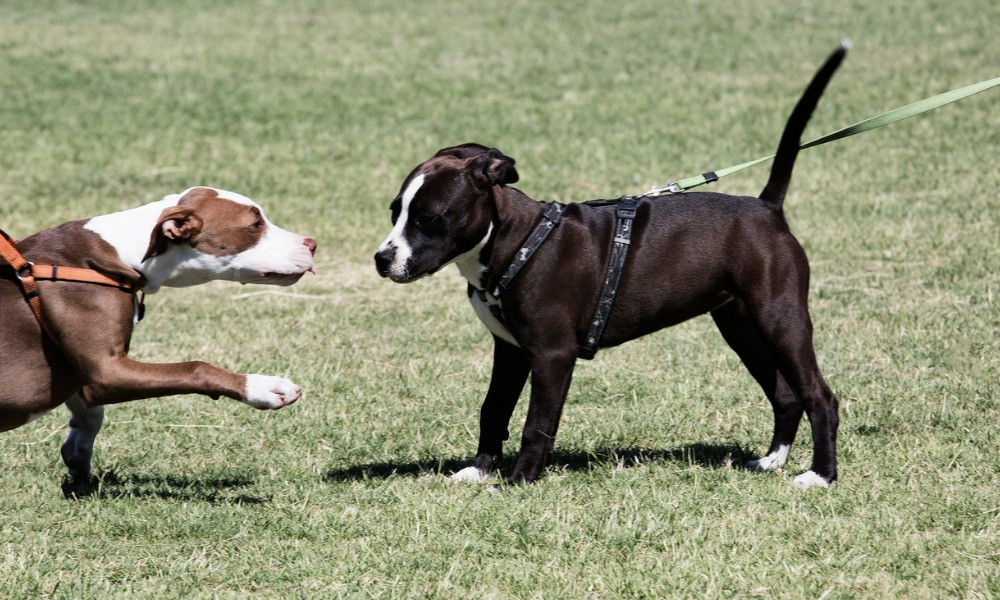
The owner must comply with several conditions, or the dog will be euthanized

The Alberta Court of Justice has declared a pitbull/cross dog dangerous and mandated stringent conditions for his return to his owner.
The court’s decision follows two serious dog attacks on February 25 in Auburn Bay, Calgary, involving the dog and another pitbull/cross dog.
The City of Calgary initially filed an application under the Dangerous Dogs Act to have both dogs declared dangerous and euthanized. However, after a canine behaviour assessment, the city dropped its application regarding one of the dogs, who will instead be handled under the responsible pet ownership bylaw.
The court reviewed two incidents involving the pitbull/cross dog on the evening of February 25. In the first incident, a man was walking his dogs, an Australian shepherd and a chihuahua cross, when the pitbull/cross dogs attacked. Despite the man's efforts and assistance from a passerby, the Australian shepherd sustained serious injuries requiring emergency care. The man also suffered injuries while protecting his dogs. In the second incident, a woman's pomeranian spitz was attacked and killed by the pitbull/cross dog. The woman attempted to fend off the attack but was unable to prevent the fatal injury to her dog.
The court found the pitbull/cross dog met the definition of a dangerous dog under the Dangerous Dogs Act, which considers a dog dangerous if it kills or injures without provocation or poses a threat to public safety. The court determined the dog’s actions fit this definition, as it killed the pomeranian spitz and, along with the other pitbull/cross dog, seriously injured the Australian shepherd and threatened their owner.
The judge reviewed behaviour assessments from three experts, ultimately finding one assessment most compelling. Despite the dog’s dangerous behaviour, the court decided that with strict conditions, the dog could be returned to its owner, who has experience handling pitbulls and agreed to stringent safety measures.
The owner must comply with several conditions, or the dog will be euthanized. The dog must be licensed, microchipped, and neutered. It must be kept indoors or in a secure, supervised yard. The owner must install double-locking mechanisms on all gates and doors. When outside, the dog must be muzzled and on a short leash, with no interaction with other dogs. “Vicious Dog” signs must be posted at the owner’s home, and inspections by bylaw officers must be allowed.
Additionally, the owner must complete ten private training sessions with a certified dog trainer. The dog must not be walked with the other pitbull/cross dog or any other dogs, and any bylaw breaches must be reported immediately. The owner must obtain $1 million in liability insurance and retain ownership for the dog’s lifetime. If the owner breaches any conditions, the dog will be surrendered and euthanized.
The court emphasized the importance of balancing public safety with dog owners' rights, applying the law without sentiment or fear.